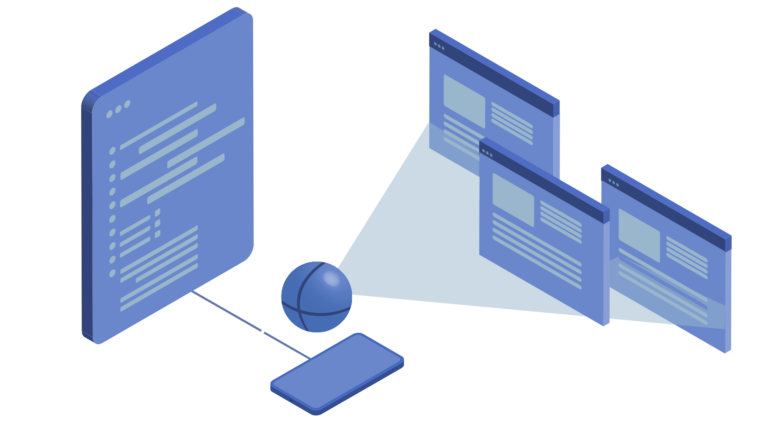What Are Residential Proxies & Why Use Them for Scraping?
Introduction
In the world of web scraping, data is king. Whether you’re a business looking to gather market insights, a researcher analyzing trends, or a developer building an application, accessing and extracting data from websites is crucial. However, web scraping can be a challenging task due to various obstacles, such as IP blocking, CAPTCHAs, and other anti-scraping measures implemented by websites. This is where residential proxies come into play.
Understanding Proxies
Before diving into residential proxies, it’s important to understand the concept of proxies. A proxy acts as an intermediary between your computer and the websites you’re accessing. When you send a request to a website, it goes through the proxy server first, which then forwards the request to the website on your behalf. This allows you to mask your real IP address and appear as if you’re accessing the website from a different location.
What Are Residential Proxies?
Residential proxies are IP addresses assigned to real residential devices, such as home computers or mobile devices. These proxies are obtained from Internet Service Providers (ISPs) and are associated with real physical locations. Unlike datacenter proxies, which are generated from servers in data centers, residential proxies offer a higher level of anonymity and credibility.
The Benefits of Using Residential Proxies for Scraping
1. Anonymity and Privacy
Residential proxies provide a layer of anonymity and privacy when scraping websites. Since the IP addresses are associated with real residential devices, it’s difficult for websites to detect that you’re using a proxy. This reduces the risk of getting blocked or flagged as a bot, allowing you to scrape data without interruptions.
2. Bypassing IP Blocking
Websites often implement IP blocking to prevent excessive scraping or to restrict access to certain regions. By using residential proxies, you can rotate between different IP addresses and bypass these restrictions. Each request you send will appear to come from a different residential IP, making it harder for websites to identify and block your scraping activities.
3. Handling CAPTCHAs
CAPTCHAs are a common challenge faced by web scrapers. They are designed to distinguish between humans and bots, requiring users to solve puzzles or enter specific characters. Residential proxies can help you overcome CAPTCHAs by rotating IP addresses. If one IP gets flagged with a CAPTCHA, you can switch to another IP and continue scraping.
4. Reliable Data Extraction
Residential proxies offer a higher level of reliability when scraping websites. Since the IP addresses are associated with real residential devices, they are less likely to be blacklisted or flagged as suspicious. This ensures that you can extract data consistently without interruptions or errors.
5. Geolocation Targeting
If you need to gather data from websites that are region-specific, residential proxies can be a valuable tool. By using proxies from different locations, you can access region-restricted content and gather data that is relevant to your target audience or market.
Frequently Asked Questions (FAQ)
Q1: Can I use free proxies for web scraping?
A1: While there are free proxies available, they are generally not recommended for web scraping purposes. Free proxies often have limitations in terms of speed, reliability, and security. Additionally, they are more likely to be detected and blocked by websites due to their widespread usage.
Q2: How do I choose the right residential proxy provider?
A2: When selecting a residential proxy provider, consider factors such as the size of their proxy pool, the locations they offer, the reliability of their proxies, and their customer support. It’s also important to check if they offer rotating IPs and have measures in place to prevent IP leaks.
Q3: Can residential proxies be used for other purposes besides web scraping?
A3: Yes, residential proxies have various applications beyond web scraping. They can be used for tasks such as ad verification, brand protection, price comparison, and market research. Their ability to mimic real user behavior makes them valuable for any activity that requires anonymity and credibility.
Q4: Are residential proxies legal to use?
A4: Yes, residential proxies are legal to use for web scraping and other legitimate purposes. However, it’s important to ensure that you comply with the terms of service of the websites you’re scraping and respect their policies regarding data extraction.
Q5: How can I optimize my web scraping process with residential proxies?
A5: To optimize your web scraping process with residential proxies, consider implementing IP rotation, using multiple proxies simultaneously, and monitoring your scraping activities to ensure compliance with website policies. Additionally, make sure to handle CAPTCHAs effectively by rotating IP addresses and using CAPTCHA-solving services if necessary.
Conclusion
Residential proxies are a valuable tool for web scraping, offering anonymity, reliability, and the ability to bypass IP blocking and CAPTCHAs. Byusing residential proxies, you can gather data from websites without interruptions or detection. Whether you’re a business, researcher, or developer, residential proxies provide the means to access and extract valuable information from the web. Remember to choose a reputable residential proxy provider and optimize your scraping process for maximum efficiency. Happy scraping!
Key Takeaways:
- Residential proxies act as intermediaries between your computer and the websites you’re accessing.
- They provide anonymity, privacy, and the ability to bypass IP blocking and CAPTCHAs.
- Residential proxies are obtained from ISPs and are associated with real residential devices.
- They offer a higher level of reliability and credibility compared to datacenter proxies.
- Residential proxies have various applications beyond web scraping.
- When using residential proxies, ensure compliance with website policies and terms of service.






